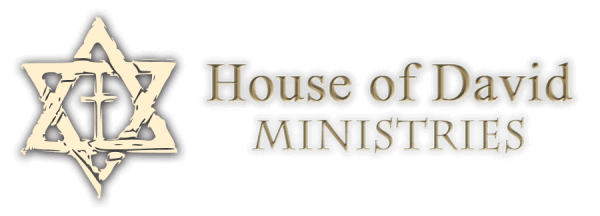We are not going to heaven. We will be entering the Kingdom. How are they different? Let me explain.
Dear brothers and sisters in Christ, Yeshua:
The arrival of the Messiah and His death and resurrection is unquestionably the most significant event in human history. Jesus-Yeshua, the Son of God, was born of a woman conceived by the Holy Spirit. He lived a perfect and sinless life, and in God’s time, He gave His life to atone for the sins of humanity.
Yeshua was crucified, buried, and on the third day, rose from the grave. Forty days later, He ascended “to heaven” to the right hand of the Father. Ten days after that, God poured out His Spirit upon all flesh, and the church was born. For those who believe, we are promised to be resurrected or raptured at the return of Christ—the next most significant event in human history. We are going to heaven! And for those who reject Christ, they will be judged by God and will go to hell.
What I have described is how most Christians view the Gospel. While there is much truth in this theological viewpoint, it does not present an accurate portrayal of the Kingdom of God. We are not going to heaven. We will be entering the Kingdom. How are they different? Let me explain.
Going to heaven or hell implies that we will be leaving the earth one day, going somewhere else. If we go to heaven, we end up in an ethereal place in the clouds where we can fly around like angels and relax to our heart’s content for eternity. And if we go to hell, we will drop into an abyss at the center of the earth that burns with fire and brimstone to be tormented forever.
Leaving the earth implies that heaven and earth are two separate places or dimensions. But as we read in Genesis, this separation did not exist at the beginning. It is written, “And they [Adam and Eve] heard the sound of the Lord God walking in the garden [of Eden] in the cool of the day” (Genesis 3:8, NKJV).[i] The division between heaven and earth appears to have come about because of sin. And we know that God will not dwell in the presence of anything unclean or unholy.[ii] Therefore, God has concealed Himself from the creation, as we read, “Surely You have driven me out this day from the face of the ground; I shall be hidden from Your face” (Genesis 4:14).
Additionally, let us presume the earth is the natural realm, and heaven is a spiritual one. In that case, going to heaven means that we will leave the natural realm and then exist for eternity in a spiritual state. If this is true, then why was Yeshua resurrected into a physical body with flesh and bones?[iii]
I find it interesting that Yeshua never said the words “go to heaven.” He did say once, “Today you will be with Me in Paradise” (Luke 23:43). But more than sixteen times in the Gospels, He said for us to “receive” or “enter the Kingdom.” Most of His discourses and parables were about “the Kingdom of God.” And He preached to Israel about it, declaring that “the Kingdom was at hand,” meaning God’s Kingdom had arrived and is present with us here on earth.
Going to heaven is not the same as entering the Kingdom. The Bible communicates a different narrative than what many believe or understand. Again, Yeshua never said that we were going to leave the earth. On the contrary. Heaven is going to invade it. God (incarnate) came from heaven to earth to tell us about His soon-coming Kingdom, and He is returning quickly to establish it—the union of heaven and earth. Thus, He taught us to pray, “Your kingdom come. Your will be done On earth as it is in heaven” (Matthew 6:10).
Yes, for a moment, we will be caught up in the clouds to meet the Lord in the air.[iv] But we are not staying there. Yeshua is returning here, and we are coming with Him. As we read, “In that day His feet will stand on the Mount of Olives, which faces Jerusalem on the east” (Zechariah 14:4). Yeshua will return to the earth on that day, and all the saints (the church) will be with Him, here on earth forever.
There is another crucial detail to highlight in this story. Yeshua said, “I was not sent except to the lost sheep of the house of Israel” (Matthew 15:24). Presuming we correlate this statement with the declaration of the Gospel. In that case, we begin to understand that the arrival of Yeshua, the Messiah of Israel, fulfilled God’s promise that He would establish His Kingdom through her.
It is written, “And now the Lord says, Who formed Me [Christ] from the womb to be His Servant, To bring Jacob back to Him, So that Israel is gathered to Him (For I shall be glorious in the eyes of the Lord, And My God shall be My strength), Indeed He says, ‘It is too small a thing that You should be My Servant To raise up the tribes of Jacob, And to restore the preserved ones of Israel; I will also give You as a light to the Gentiles, That You should be My salvation to the ends of the earth…’ In an acceptable time I have heard You, and in the day of salvation I have helped You; I will preserve You and give You [Yeshua] As a covenant to the people, To restore the earth, To cause them to inherit the desolate heritages” (Isaiah 49:5-6 & 8).
The reuniting of heaven and earth, hence the restoration of creation and God’s Kingdom, began with Israel and culminates with her. Yeshua said, “We know what we worship, for salvation is of the Jews” (John 4:22). And the Apostle John declared, “Behold! The Lamb of God who takes away the sin of the world!” (John 1:29).
Yeshua is the Lamb of God who fulfilled the Law of Moses given to Israel, the law of sacrifice and atonement, and the law of sin and death. Through the Old Covenant, God established His Tabernacle in Israel, providing a temporary covering for sin so that He could dwell with His people. God’s presence was concealed within the holy of holies, and yet, for a season, heaven invaded this small portion of the creation.
At the crucifixion, God’s presence broke through the veil that separated the holy of holies from His creation. The work of God’s atonement was thereby transferred to the cross, where Christ would propitiate for the sins of all humanity. On the day of Pentecost (Shavuot), the Holy Spirit was poured out on all flesh, and now for every person (Jew and Gentile) who believes and confesses that Jesus is the Christ, the Kingdom of God has taken up residence in our hearts. The King has come, and now the Kingdom also. But the Kingdom is not fully established on earth, not yet.
We are also reminded that the Gentiles (the nations) have been brought into this continuing and unfolding story of God’s redemption for His people, Israel. But the story did not begin with Yeshua. It started with Abraham. We read, “Therefore it is of faith that it might be according to grace, so that the promise might be sure to all the seed, not only to those who are of the law, but also to those who are of the faith of Abraham, who is the father of us all” (Romans 4:16).
Paul said that the promise of the Messiah would come from Abraham through Isaac and Jacob (renamed Israel). Therefore, he said, “For I could wish that I myself were accursed from Christ for my brethren, my countrymen according to the flesh, who are Israelites, to whom pertain the adoption, the glory, the covenants, the giving of the law, the service of God, and the promises; of whom are the fathers and from whom, according to the flesh, Christ came, who is over all, the eternally blessed God. Amen” (Romans 9:3-5).
Paul then expands this story of the Kingdom to now include the Gentiles. He said, “And if some of the branches were broken off, and you, being a wild olive tree, were grafted in among them, and with them became a partaker of the root and fatness of the olive tree” (Romans 11:17). “That the Gentiles should be fellow heirs, of the same body, and partakers of His promise in Christ through the gospel” (Ephesians 3:6).
The cultivated Olive tree is a picture of the Kingdom of God. It belongs to Israel and now those of the nations who have been grafted into her.[v] At the very heart of God’s Kingdom is the land of Israel and His holy city, Jerusalem. This land was promised to the natural descendants of Abraham. While the inheritance of this land has been challenged for centuries, it is arguably one of the best cases for an earthly Kingdom. Otherwise, why would Satan be fighting so hard to resist it? Rabbi Tzvi Freeman made this revelatory statement about this, saying:
“The nations cannot understand why the Jewish people should have a land. ‘If it is God and scriptures and heaven that you are all about,’ they claim, ‘then why do you want a piece of earth? Is God in a place? Will you find God in settling land, in governing a country, in defending it? Make up your mind: Is it heaven you want, or earth?’”
“Those words, perhaps, are never said. They are quiet words, engraved within the human psyche. And they are the bias behind all their contentions with us: We don’t belong here, on earth, where they belong, playing by their rules. Because God is in the heavens, and the earth belongs to humankind.”
“But this is the mission of the Jewish people: For all to see that the same God in heaven is here within the earth, within all the endeavors of humankind. For there is nothing else but Him. Beginning with that specific, well-defined, very special piece of earth to which our destiny is tied.[vi]
What a significant revelation where he said, “But this is the mission of the Jewish people: For all to see that the same God in heaven is here within the earth, within all the endeavors of humankind.” In other words, God’s faithfulness to give the land of Israel to the descendants of Abraham is an absolute truth of God’s Kingdom, and it will be established here on earth for all eternity.
We, the Jewish people, are but a mere revelation of God’s faithfulness. Thus, our very words testify of who He is, as Yeshua said, “You shall be witnesses to Me in Jerusalem, and in all Judea and Samaria, and to the end of the earth” (Acts 1:8). And it is our irrevocable calling to preach the gospel of Christ and His Kingdom in all the earth.[vii]
But the inheritance of land is not exclusively for the nation of Israel. We read, “Ask of Me, and I will give You The nations for Your inheritance, And the ends of the earth for Your possession” (Psalm 2:8). Christ will ultimately take possession of His entire creation. For it is written, “The kingdoms of this [physical] world have become the kingdoms of our Lord and of His Christ, and He shall reign forever and ever!” (Revelation 11:15).
So, here we have returned, full circle—back to the gospel, specifically, the gospel of the Kingdom. This is “the good news,” that God has come to us. He has visited and redeemed His people, as it is written, “Blessed is the Lord God of Israel, For He has visited and redeemed His people, and has raised up a horn of salvation for us In the house of His servant David” (Luke 1:68-69). Therefore, Yeshua declared, “The time is fulfilled, and the kingdom of God is at hand. Repent, and believe in the gospel” (Mark 1:15).
God is restoring the entire creation to Himself, to the perfect conditions in the Garden of Eden. Day by day, the Kingdom of God is advancing, one heart at a time transferred from the kingdom of darkness into His marvelous light. And once the Kingdom is fully established in the creation, nothing unclean may enter, as it is written, “But there shall by no means enter it anything that defiles, or causes an abomination or a lie, but only those who are written in the Lamb’s Book of Life” (Revelation 21:27).
So, it is not that God sends people to hell. He denies their entry into His Kingdom. And those who are rejected are cast out of the Kingdom to a place outside of the creation. As we read, “And cast the unprofitable servant into the outer darkness. There will be weeping and gnashing of teeth” (Matthew 25:30).
In the beginning, God created heaven and earth, not heaven and hell, and it was perfect. Hell is more than a place. It is a condition, a state of wickedness that exists within the creation because of humanity’s sinful nature. It has become a temporary holding place for those awaiting God’s judgment, as we read, “For if God did not spare the angels who sinned, but cast them down to hell and delivered them into chains of darkness, to be reserved for judgment” (2 Peter 2:4). The final judgment is the “casting out” of God’s Kingdom of all who reject Yeshua, the King, as it is written, “Then He will also say to those on the left hand, ‘Depart from Me, you cursed, into the everlasting fire prepared for the devil and his angels’” (Matthew 25:41).
And yet, even in this dark place, God’s presence is still there. As we read, “He himself shall also drink of the wine of the wrath of God, which is poured out full strength into the cup of His indignation. He shall be tormented with fire and brimstone in the presence of the holy angels and in the presence of the Lamb” (Revelation 14:10).
Those who unite themselves to Satan’s kingdom will also find themselves tormented before the Lamb. As it is written, “But the cowardly, unbelieving, abominable, murderers, sexually immoral, sorcerers, idolaters, and all liars shall have their part in the lake which burns with fire and brimstone, which is the second death” (Revelation 21:8).
As Christians, we are called to be followers and imitators (disciples of Christ). We are imperfect people, undeserving of God’s mercy and forgiveness, and certainly unworthy of entering His Kingdom. Yet, I am reminded of a powerful story of transformation in the Old Testament—David’s mighty warriors, in Hebrew, the Gibburim (the mighty ones).
However, these men certainly did not start this way. We read, “So David left Gath and escaped to the cave of Adullam. Soon his brothers and all his other relatives joined him there. Then others began coming—men who were in trouble or in debt or who were just discontented—until David was the captain of about 400 men” (1 Samuel 22:1-2).
Men who were in trouble, in debt, or discontented? That sounds like a group of imperfect misfits to me. Here, David serving as a type for the coming Messiah, without even trying or wanting, has attracted an unprofitable group of servants.[viii] Yeshua said, “Does he [the master] thank that servant because he did the things that were commanded him? I think not. So likewise you, when you have done all those things which you are commanded, say, ‘We are unprofitable servants. We have done what was our duty to do’” (Luke 17:9-10).
Now, this might sound like a rebuke from the Lord, but also listen to these words of our Savior: “His lord said to him, ‘Well done, good and faithful servant; you were faithful over a few things, I will make you ruler over many things. Enter into the joy of your lord’” (Matthew 25:21). Enter where? Enter into the Kingdom of our Lord, where there is immeasurable joy.
Once again, we will enter the Kingdom of God here on earth and not leave it. Heaven and earth will unite as one, for it is written, “Thus says the Lord: ‘Heaven is My throne, and earth is My footstool. Where is the house that you will build Me? And where is the place of My rest [His tabernacle]?’” (Isaiah 66:1).
The house of God is His church, and the place of God’s rest is among His people here on the earth, albeit, in time, a “new heaven and earth,” “a new creation.” For it is written, “Now I saw a new heaven and a new earth, for the first heaven and the first earth had passed away. Also there was no more sea. Then I, John, saw the holy city, New Jerusalem, coming down out of heaven from God, prepared as a bride adorned for her husband. Behold, the tabernacle of God is with men, and He will dwell with them, and they shall be His people. God Himself will be with them and be their God” (Revelation 21:1-3).
God has called us to go everywhere and share the “good news” of His Kingdom, not telling people incorrectly that we are going to heaven. But appropriately teaching them about the gospel of the Kingdom. That Christ has come, He is returning soon, and we will be joining Him as we enter the Kingdom. As Yeshua said, “Behold, I am coming quickly, and My reward is with Me, to give to every one according to his work” (Revelation 22:12).
And what is our reward? Undeserving and unprofitable servants that we are. The Lord has promised to give each of us a portion of His Kingdom inheritance. These are the kingdoms of this world that are presently under the realm of darkness. As we read, “I will give you the treasures of darkness And hidden riches of secret places, That you may know that I, the Lord, Who call you by your name, Am the God of Israel” (Isaiah 45:3). Therefore, let us serve the Lord without ceasing in this present age, and in the age to come, let us enter the Kingdom together as Gibburim, mighty men and women of valor.
Amen!
SOURCE: HOUSE OF DAVID MINISTRIES
[i] All Scripture quotations are taken from the New King James Bible (NKJV) unless otherwise noted, Thomas Nelson Inc., 1982.
[ii] Zechariah 13:1-2.
[iii] Luke 24:39.
[iv] 1 Thessalonians 4:17.
[v] Romans 9:3-5.
[vi] Freeman, Tzvi. Our Land. Chabad.org.
[vii] Romans 11:29.
[viii] Isaiah 65:1.






